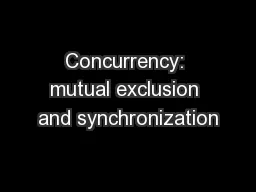PPT-A lternative narratives of social exclusion
Author : ellena-manuel | Published Date : 2016-04-09
The case of school exclusion Dr Louise Gazeley University of Sussex Families and parenting Social and educational disadvantage Compensatory approaches meritocracy
Presentation Embed Code
Download Presentation
Download Presentation The PPT/PDF document "A lternative narratives of social exclus..." is the property of its rightful owner. Permission is granted to download and print the materials on this website for personal, non-commercial use only, and to display it on your personal computer provided you do not modify the materials and that you retain all copyright notices contained in the materials. By downloading content from our website, you accept the terms of this agreement.
A lternative narratives of social exclusion: Transcript
Download Rules Of Document
"A lternative narratives of social exclusion"The content belongs to its owner. You may download and print it for personal use, without modification, and keep all copyright notices. By downloading, you agree to these terms.
Related Documents














